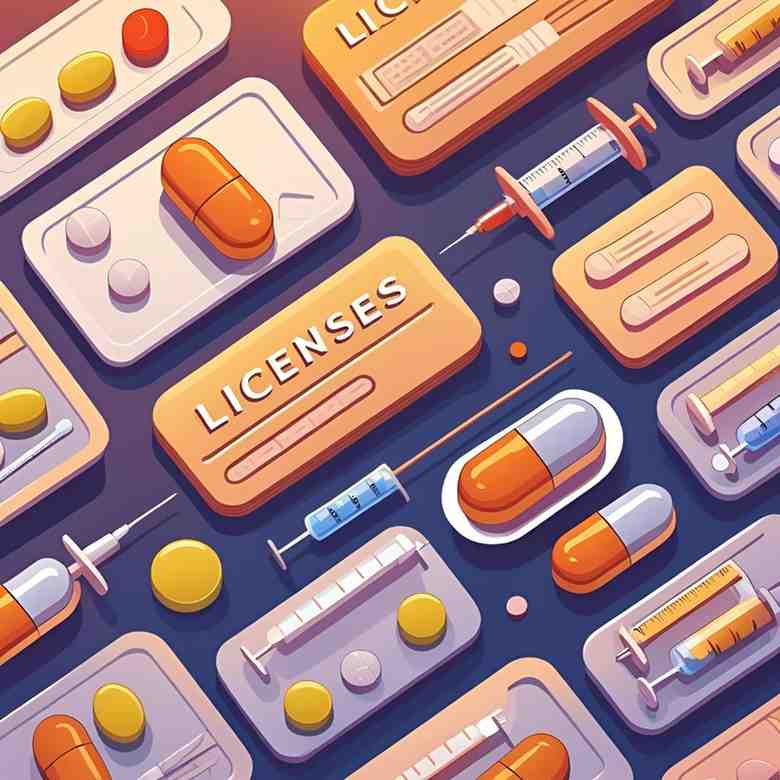


Explore types of drug licenses in India like retail, wholesale, and manufacturing. Know their uses, requirements, and how to apply for each.
If you’re planning to start a pharmacy, a medical store, or a pharmaceutical business in India, obtaining the right drug license is a legal necessity. The Drugs and Cosmetics Act, 1940 governs the distribution, manufacture, and sale of drugs and cosmetics in the country. But did you know there are different types of drug licenses based on the nature of your business?
In this blog, we’ll explain the various types of drug licenses in India, including wholesale, retail, and other specialized categories. We’ll also briefly touch upon eligibility criteria, documents required, and how to apply.
A Retail Drug License is required by businesses or individuals who sell drugs directly to consumers. This is the most common license used by:
Pharmacies
Medical stores
Chemists
General stores selling OTC drugs
Retail drug licenses are issued by the State Drug Standard Control Organization (SDCO) and are location-specific. A registered pharmacist must be employed full-time at the retail outlet to comply with licensing norms.
Common Use Cases:
Pharmacy in hospitals
Independent chemist stores
Online medicine sellers (requires additional permissions)
A Wholesale Drug License is mandatory for entities engaged in the bulk sale or distribution of drugs to retailers or hospitals. Unlike retail stores, wholesalers are not allowed to sell drugs directly to consumers.
This license is suitable for:
Pharmaceutical distributors
Stockists
Chain stores managing centralized inventory
To apply for a wholesale drug license, the applicant must appoint a qualified person with a degree or diploma in pharmacy or a minimum of 1 year of experience in drug sales.
A Manufacturing License is issued to units engaged in manufacturing of allopathic, ayurvedic, or homeopathic drugs. This license is granted by the Central Drugs Standard Control Organization (CDSCO) or the respective state authority.
This type of drug license requires:
Good Manufacturing Practices (GMP) compliance
Technical staff (chemists, analysts)
Proper infrastructure and equipment
This license is further categorized into:
Allopathic drug manufacturing
Ayurvedic drug manufacturing
Homeopathic drug manufacturing
Cosmetics manufacturing
A Loan License is issued to a business that does not own a manufacturing unit but uses another firm’s facility to manufacture drugs. This is useful for startups or brands looking to outsource manufacturing while keeping their label.
To import drugs into India for sale or distribution, you need an Import License from the CDSCO. It is applicable to:
International pharmaceutical companies
Indian firms acting as authorized importers
Clinical trial material suppliers
Applicants must comply with labeling, documentation, and quality control norms as defined under the Drugs and Cosmetics Act.
A Restricted Drug License is issued to businesses like general stores or small outlets that intend to sell only certain over-the-counter (OTC) medications and do not employ a registered pharmacist.
This license typically permits sale of non-prescription medicines and basic healthcare products.
The right type of drug license depends on:
Nature of your business (retail, wholesale, manufacturing)
Type of drugs (prescription, OTC, ayurvedic)
Volume and scope of operation
Always consult with a drug license consultant or your local licensing authority to determine the correct category.
While the documents may vary slightly by state, most applications will require:
Identity and address proof of applicant
Premises proof (rent agreement or ownership papers)
Pharmacist registration certificate (for retail)
Qualification proof of technical staff (for wholesale)
Layout plan of premises
Affidavit or declaration form
Whether you’re setting up a neighborhood pharmacy or starting a pharmaceutical distribution business, getting the correct type of drug license in India is non-negotiable. Each license type comes with its own set of conditions, so it’s crucial to understand the requirements before you apply.
For hassle-free licensing, many entrepreneurs today opt for professional assistance to ensure compliance and faster approval.
